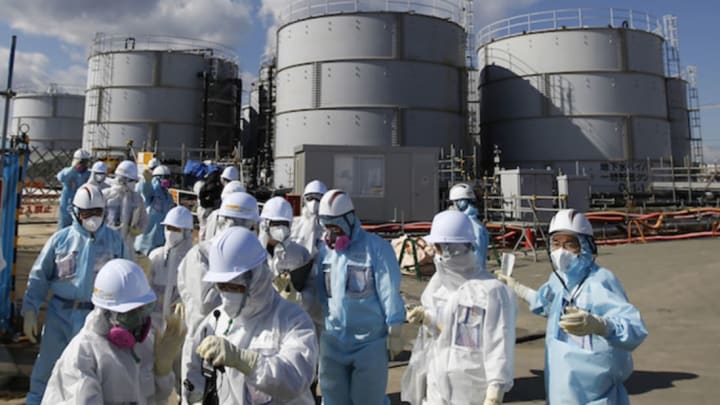In 2011, an earthquake and subsequent tsunami damaged Japan's Fukushima Dai-ichi nuclear plant. The plant's reactor cooling systems were disabled, which led to a flow of radioactive water. After several failed attempts over the past five years to contain the contaminated water, TIME reports that the Tokyo Electric Power Co. recently activated a $312 million government-funded solution: an underground refrigeration system that will form a wall of frozen soil to block the contamination.
According to the Associated Press, the system, built by the Kajima Corp. construction team, is designed to create a frozen soil barrier nearly a mile long. The ice wall will prevent groundwater from flowing into the area and will keep the contaminated water from flowing out. The collection of 1550 pipes runs 10 stories deep and contains coolants to freeze the surrounding soil to minus 22 °F.
Now that the system is operational, it could take several weeks for the wall to form. Some critics point out that the slow freeze and thaw time could cause problems in emergency situations. However, it is a feature that could be beneficial in the case of a power failure; the frozen barrier will hold for up to two months. Watch the video below for more details on the project.
[h/t TIME]
